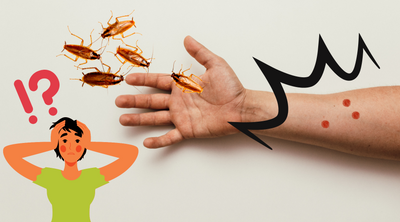Don’t be fooled by the small size of fleas because sometimes, the most dangerous things come in the smallest packages. Proper flea control and guarding your pets can help in the control and prevention of the different diseases fleas transmit and carry.
You probably think that those small pests can just make your pet end up itching and scratching. But, adult fleas are known to transmit and cause numerous diseases and sadly, some of these are fatal. Failure to protect your pets can make you prone to different health risks, and in severe cases, it can even affect public health.
Known Diseases that Fleas Can Transmit
In general, the biggest discomfort that results from having fleas are the flea bites as well as the intense itching that can affect pets. Most of the time, the red bite marks, and the itchiness gradually disappear with no long-term effects on health.
But, since fleas have been recognized as vectors of transmitted disease and can lead to numerous allergic reactions in a more sensitive pet or person, it is critical to be familiar with the different potential diseases that can result from flea infestation.

Plague
You have probably heard of the plague that resulted in the death of almost a third of the population of Europe during the Middle Ages. While getting the plague is not a common occurrence for humans anymore, there is still a chance for it to affect your pet. An infected flea that took a bite of a wild animal such as a vole, chipmunk, or prairie dog living in infested areas can infect a pet and pass on the disease.
Dogs and cats infected with plague will show some signs of the disease and the symptoms include swollen lymph nodes, fever, and worse, sudden death may occur with no warning at all. If you suspect the plague to affect your pet, you have to call your veterinarian right away and isolate the infected animal from others to prevent the spread of the disease.
Murine Typhus
The disease is a rare condition in North America yet there are several cases of murine typhus being reported annually, most of which come from the southwestern states. The disease comes from areas infested by rats, with fleas acquiring the infection from them.
The main symptoms may affect your pets include severe headache, high fever, weakness, nausea, and chills. There is an available treatment to help patients recover quickly.
Sadly, murine typhus is a flea-borne disease that pets can bring into the house.
Tapeworms
How does biting a flea make your dog carry tapeworms? It is simple. When your dog accidentally ingested a flea that carries tapeworm eggs in its bodies, your pet will soon get infected. The moment it gets inside your pet, the tapeworm will hatch and attach itself to the intestines, resulting in irritation, vomiting, and weight loss.
Flea-Related Allergies
Flea saliva causes humans to suffer from skin dermatitis that often shows up on skin patches as a rash or itchy bumps. Inhaling flea feces can make other people experience reactions of asthmatic-type. Pets can react to bites of fleas, commonly developing flea allergy dermatitis or flea hypersensitivity. The result is that the pets suffer from crusty lesions, constantly scratching their skin that leads to fur loss.
Haemobartonellosis
Ticks often transmit haemobartonellosis but a dog or cat flea can also carry this disease. It is a disease targeting red blood cells causing mild to extremely severe symptoms. Once it becomes very severe, the condition can make cats suffer from anemia resulting in a fast heart rate and weight loss. There are instances when infected cats are seen eating dirt and when left untreated, the disease can result in death.
Haemobartonellosis most likely affects dogs with removed spleens. This can lead to weight loss and loss of appetite in canines.








